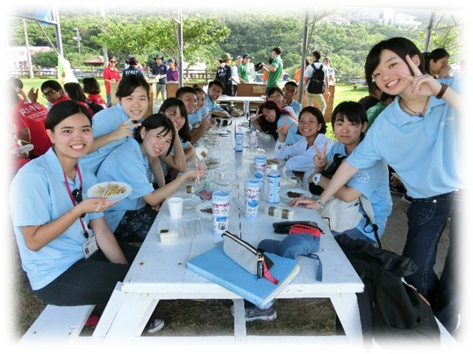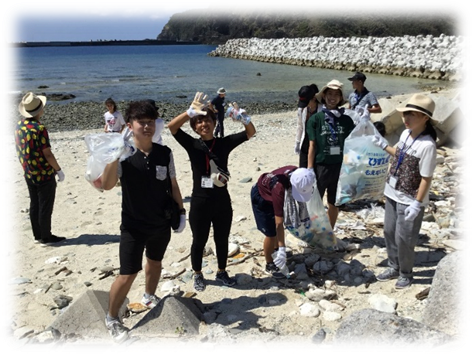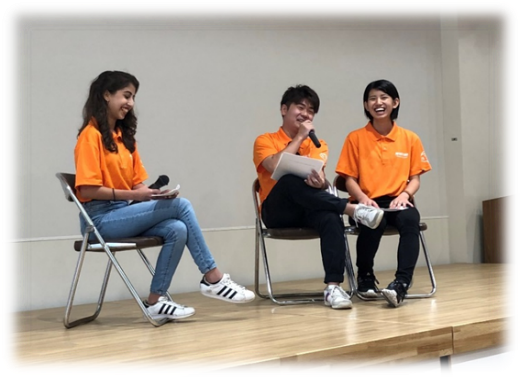Implementation period: 2017-2018
Purpose:
In addition to learning about the history and culture of the areas of Nanjo City, Ie Village, and Tokashiki Village, "regional promotion" to discover the charm of the area, and "global human resource development" about communication created through encounters with many people. , Through deep exchange through this project, we carried out with the aim of forming an "international exchange network" for middle and high school students in Okinawa and Asia.
Implementation content:
The following programs were implemented to achieve three main purposes.
First, in order to develop global human resources who will lead to next-generation innovation, we will acquire the perspective of learning through lectures such as "How to find ideas for solving regional problems" and "Points of communication", and that perspective. In Tokashiki Village, we deepened our consideration of environmental issues from the collection and separation of drifting garbage. I learned that the problem of marine debris is not just a local problem but a part of the global marine pollution problem.
Secondly, in order to contribute to the development of the international exchange network centered on Okinawa, we will provide opportunities to participate in local events, deepen exchanges with residents, and introduce each other's culture and dance through exchange meetings with junior and senior high school students. It was. In addition, through lectures and exchanges of opinions by AYNIT OG / OB, we realized the significance and effects of this project and led to the development of networks that transcend generations.
Third, various programs were set up in the three cities and villages in order to put into practice programs that lead to regional development. In Nanjo City, I learned about the formation of the area and the traditional way of life through "Machimai" in the Otani area. In addition, I was able to learn about the history and culture of Ryukyu by experiencing the history and cultural heritage through visiting "Sefa Utaki" and "Okinawa World". In Ie Village, I was able to experience Okinawan cuisine, field work, handicrafts, etc. and experience everyday life through the private lodging experience. Participants were warmly welcomed at each home, and we were able to have deep exchanges that transcended differences in language and culture. In Tokashiki Village, he looked back on his sad history through "peace learning" and vowed not to repeat such history again. In addition, by observing and experiencing the powerful performance of "Kerama Taiko", I was able to experience the traditional performing arts of the region.



